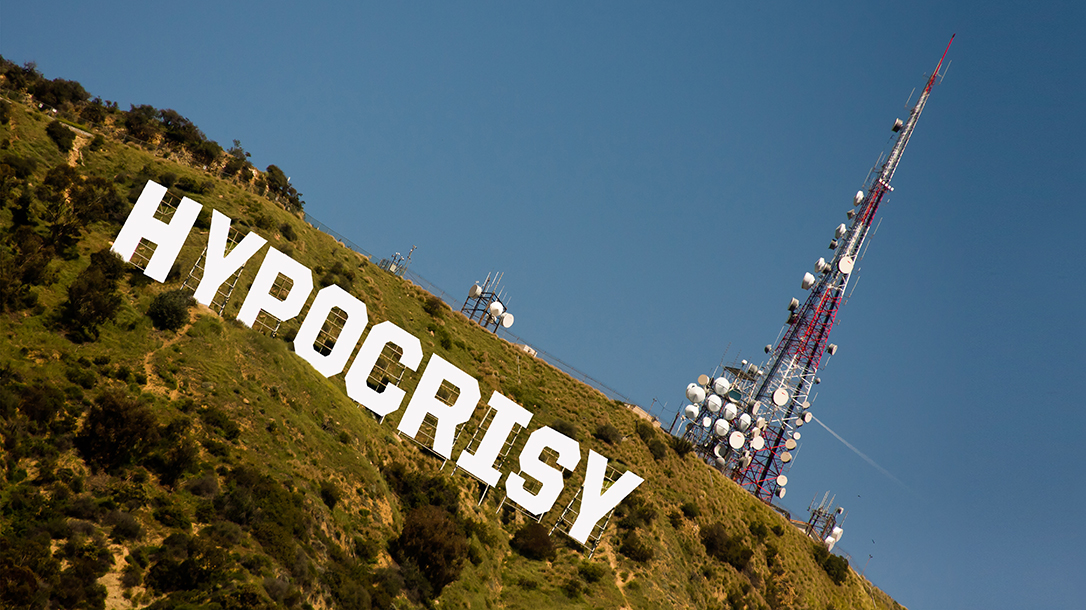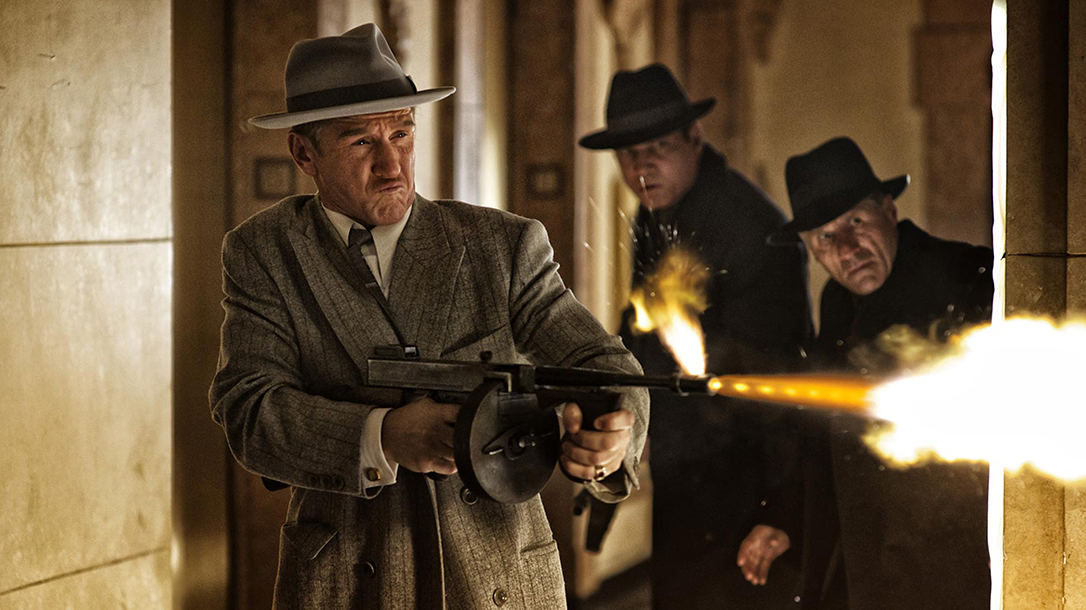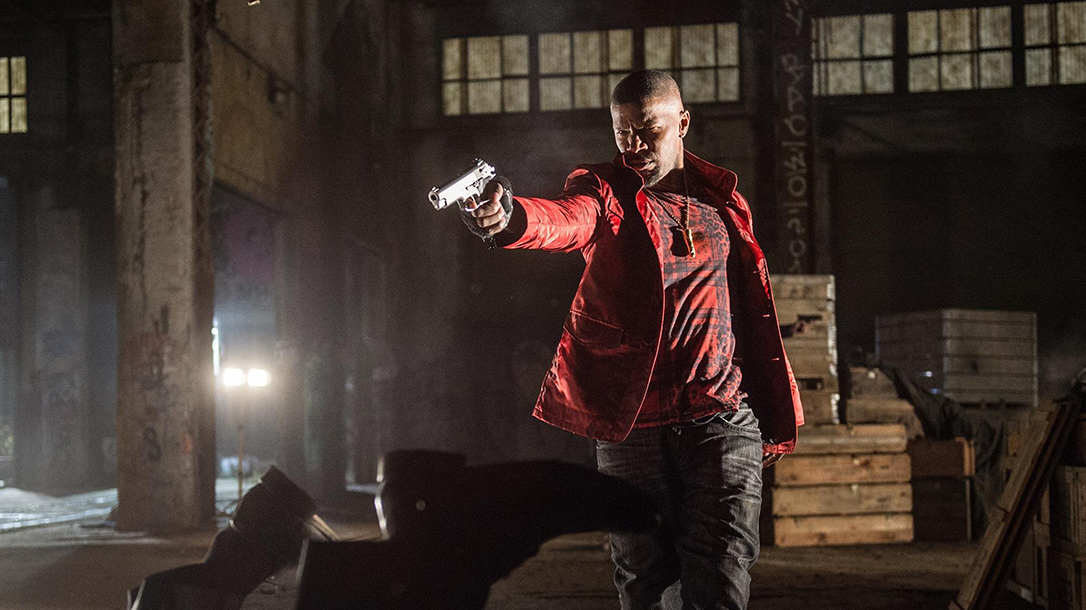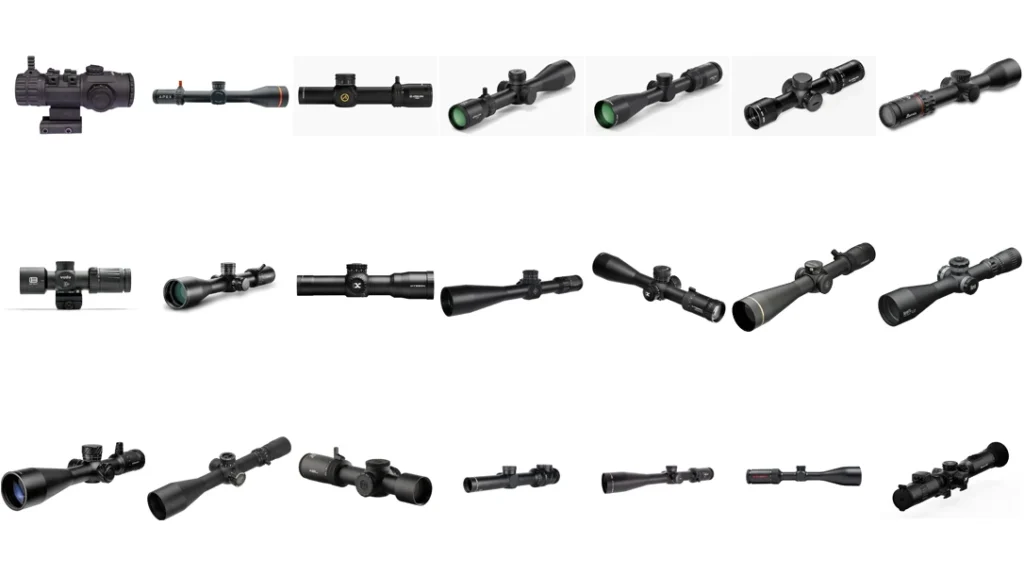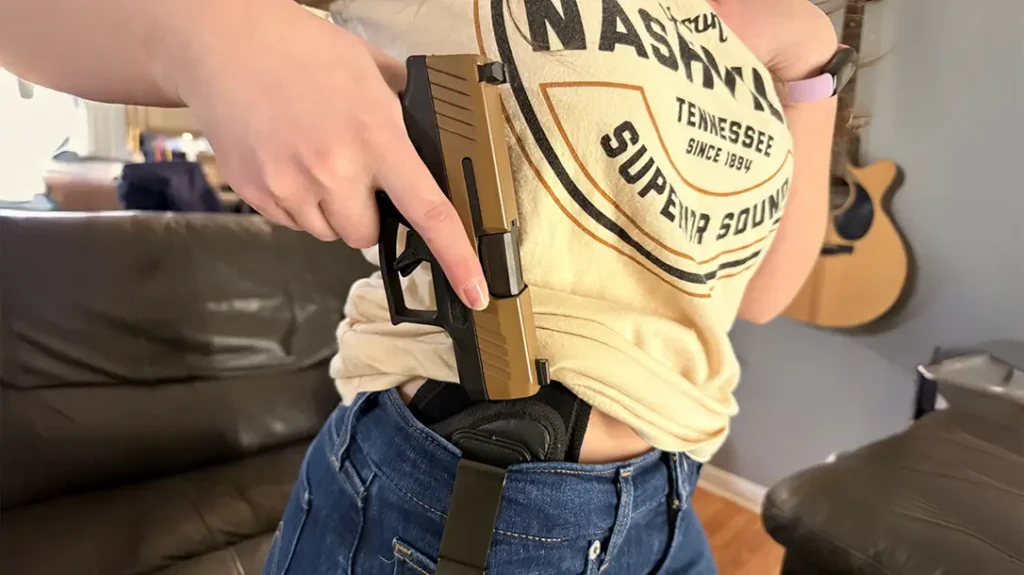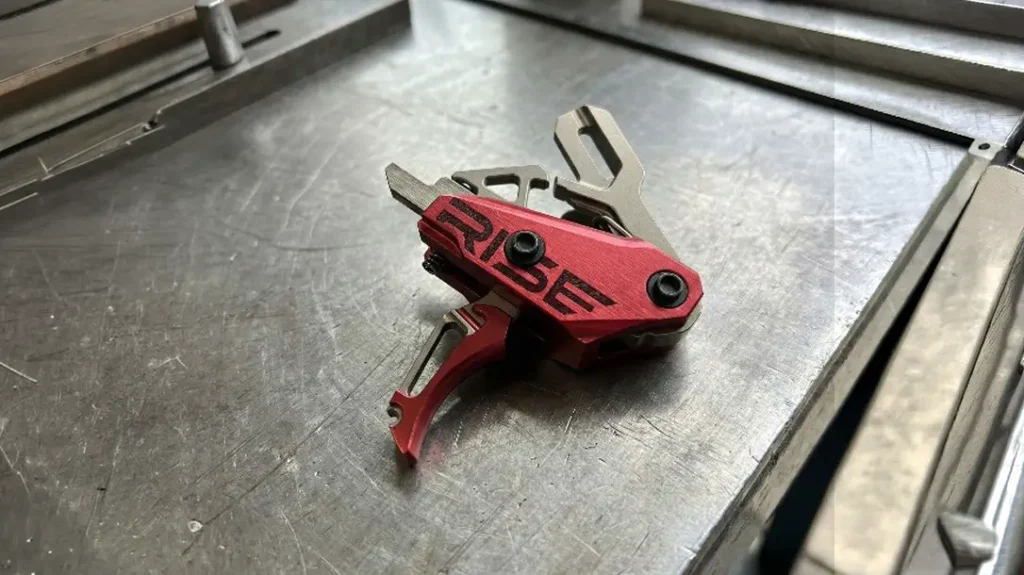Hollywood has a gun problem. Or, rather, many Hollywood elites have a problem with guns and support stricter gun-control laws and even the repeal of the Second Amendment. This is somewhat ironic, as there seems to be no shortage of gunfights in films these days. Firearms are expected in the traditional action/adventure and crime drama genres. But the hypocrisy is notable, as guns are even showing up in romantic comedies and in many family-friendly films.
The connection between guns and movies is hardly new. Firearms have been a staple in movies since the earliest days of filmmaking. It is widely believed that the first action sequences that involved firearms were in the 1903 film The Great Train Robbery. Gunfights would become a staple of filmmakers. Over the past century, firearms have remained very much a part of movies, including how they are marketed.
Advertisement — Continue Reading Below
Enough Is Enough
Westerns, war movies and action films have long featured firearms as prominently as the actual stars. Gary Cooper and Humphrey Bogart were featured holding guns on iconic movie posters; the same way Jamie Foxx and Sean Penn have been seen brandishing firearms in recent years. Here, however, is a notable difference: Cooper and Bogart weren’t vocally outspoken critics of firearms. However, Foxx and Penn have both made their stance on firearms very clear.
Foxx was one of several Hollywood elites (as well as plenty of B-listers) who appeared in a widely circulated 2013 public service announcement that called for an end to gun violence. Stars such as Jon Hamm, Amy Poehler, Ellen DeGeneres, Cameron Diaz, Steve Carell and Peter Dinklage, among others, appeared in the video calling out mass shootings and each offering the message of “enough.”
Enough what? To the celebrities, it was the time for increased gun control, but then something interesting happened. A response video was compiled that took the somber PSA and intermixed it with footage of each of those stars in scenes from movies and TV shows in which they were engaging in often violent gunfights or using firearms irresponsibly. That video highlighted the fact that it would be far easier to accept the message from these actors if they didn’t spend so much time glamorizing gun violence on screen. Enough indeed!
Advertisement — Continue Reading Below
Everyone Else
Sure, there is the argument that appearing with guns in movies is just part of the job, but this could open a whole debate about the jobs in the firearms industry as well. Apparently those who make millions of dollars acting have a very narrow worldview. They clearly don’t think about the jobs of gun designers, gun makers, gun shop owners and others who make their living from the very legal sale of firearms. But, as with activists such as Michael Moore, perhaps it is easy to ignore such details.
It is also easy to ignore the fact that millions of law-abiding citizens own guns and don’t need to be lectured by those who only play characters like doctors, lawyers and politicians on screen. Acting doesn’t make a person qualified to speak on complex issues. However, these stars either don’t understand or, worse, actually expect many people to believe that because they are rich and famous they are somehow qualified to debate such matters.
Increased Violence
Perhaps the biggest irony is that just as Hollywood has become increasingly vocal about gun violence, today’s movies have become increasingly more violent. While shootouts have long been a part of Hollywood films, the bar was raised in the 1980s and 1990s. However, it wasn’t actually in America where the action was ratcheted up. It was in the Hong Kong “action cinema,” which gave rise to directors such as John Woo and Ringo Lam—the latter noted for the 1987 film City on Fire, which was essentially remade by Quentin Tarantino as Reservoir Dogs.
Advertisement — Continue Reading Below
In the 1990s, the level of action was then amped up in Hollywood, notably in the 1995 crime thriller Heat, directed by Michael Mann. It is noted for its intense 15-minute bank shootout sequence in downtown Los Angeles. The scene is ironically inspired the real-life 1997 North Hollywood bank robbery and subsequent shootout. There had been plenty of crime dramas that featured shootouts between police and criminals; typically the action lasted mere minutes. Heat truly raised the bar. It was followed by Saving Private Ryan in 1998, which offered a more realistic take on World War II. The Matrix followed in 1999.
This game-changing science-fiction film made extensive use of CGI to create an intense action sequence where thousands of bullets were fired. The action films that followed increasingly used computers to create ever more intense sequences. Yet the anti-gun Hollywood types have never spoken out against it.
Advertisement — Continue Reading Below
The Case of Sean Penn
One of the most egregious examples is 2013’s Gangster Squad. The film is loosely based on the very real Los Angeles gangster Mickey Cohen. The film features a climactic 20-minute shootout with Thompson submachine guns and a sizeable body count. In real life, Mickey Cohen was taken down for tax evasion. His story can be summed up much more accurately in the brief opening of the 1997 film L.A. Confidential, a crime drama that, while featuring several shootouts, didn’t go to Matrix-level extremes.
The irony here is that Cohen was played by Sean Penn, who has become a strong proponent for gun control. Meanwhile, the former self-confessed gun collector actually claimed to have melted down many of his firearms. This happened in 2014 after being prompted to do so by his then-girlfriend Charlize Theron, another action-film staple who routinely can be seen on screen brandishing a firearm. Penn had already shown his true colors as a gun-control supporter who actually owned guns. But then, after completely denouncing firearms and calling them “cowardly killing machines,” he still opted to star in the 2015 film The Gunman.
Drop the Hollywood Hypocrisy
The level of hypocrisy has only increased in the past couple of years. George Clooney, who has starred in several films featuring violent shootouts, joined other Hollywood A-listers in the March for Our Lives rally that called for stricter gun legislation, while Jennifer Lawrence attempted to distance herself from guns at the New York City premiere of her R-rated spy thriller Red Sparrow. She was quoted as saying, “I think the problem is guns, not the entertainment industry.”
Advertisement — Continue Reading Below
Advice to Ms. Lawrence: Maybe stick to comedies and dramas if you have a problem with guns. The same advice goes out to Jamie Foxx, the star of Quentin Tarantino’s Django Unchained. He said he believes movie violence could be connected with real-world violence. While promoting the film, he told the Associated Press, “We cannot turn our back and say that violence in films or anything that we do doesn’t have a sort of influence.”
That would be fine, of course, if Foxx opted to stick to musicals and comedies. However, since making the press rounds for Django Unchained, he has starred in White House Down, Sleepless and Baby Driver — three films that feature no shortage of violence.
There are those actors who have stuck to their morals if not their guns, but only so much. Let’s look at Megan Boone, star of NBC’s The Blacklist. She Tweeted that her character would not carry an assault rifle on screen in the future. Of course, she might still be seen carrying a sidearm on a show that routinely features rather intense violence for a drama that runs in primetime at 8 p.m.—the so-called “family hour”—on a major U.S. broadcast network.
Advertisement — Continue Reading Below
Final Thoughts
The final consideration regarding movies and guns is the way that films are increasingly advertised. As noted, Hollywood has long featured firearms on movie posters. Today, however, firearms are ever more prominently placed on the poster; almost to the point that perhaps the type of firearm should get equal billing with the stars. But then again, these privileged elites wouldn’t like to share the spotlight or their top billing.
Maybe that’s what is needed to get the gun haters to stop starring in films that do put the firearms in the spotlight. If we suddenly pay more attention to the gun rather than the star, maybe these gun-control types would stay out of gun-centric films. But really, wouldn’t we just rather have them shut up on the subject?
This article is from the winter 2019 issue of Ballistic Magazine. Grab your copy at OutdoorGroupStore.com. Pick up your digital-only subscription on Amazon.
